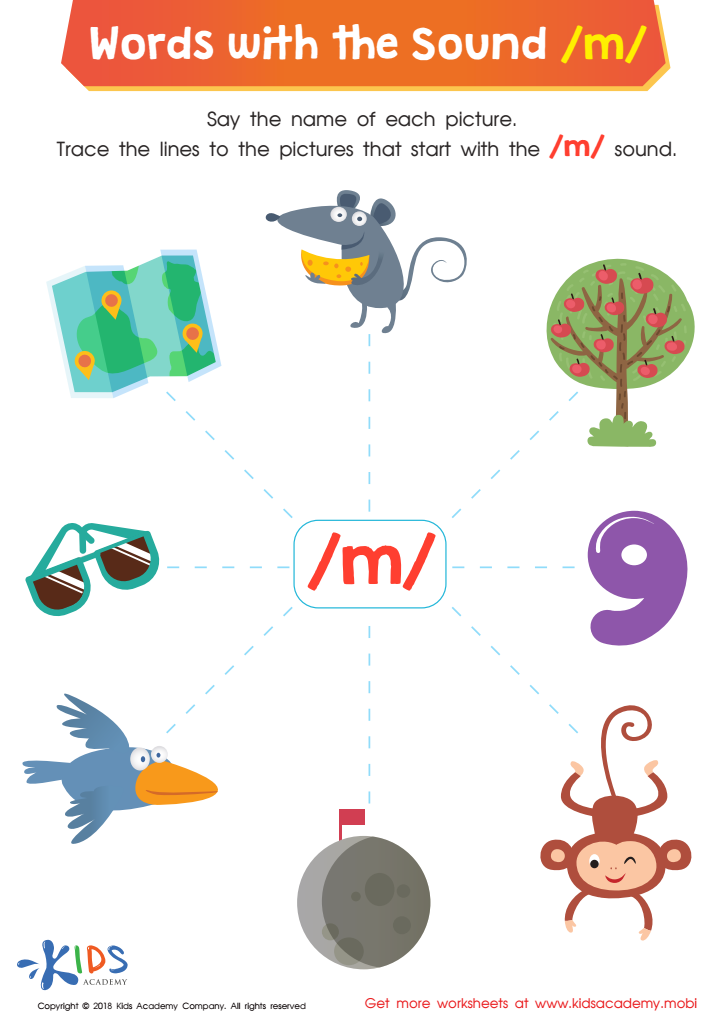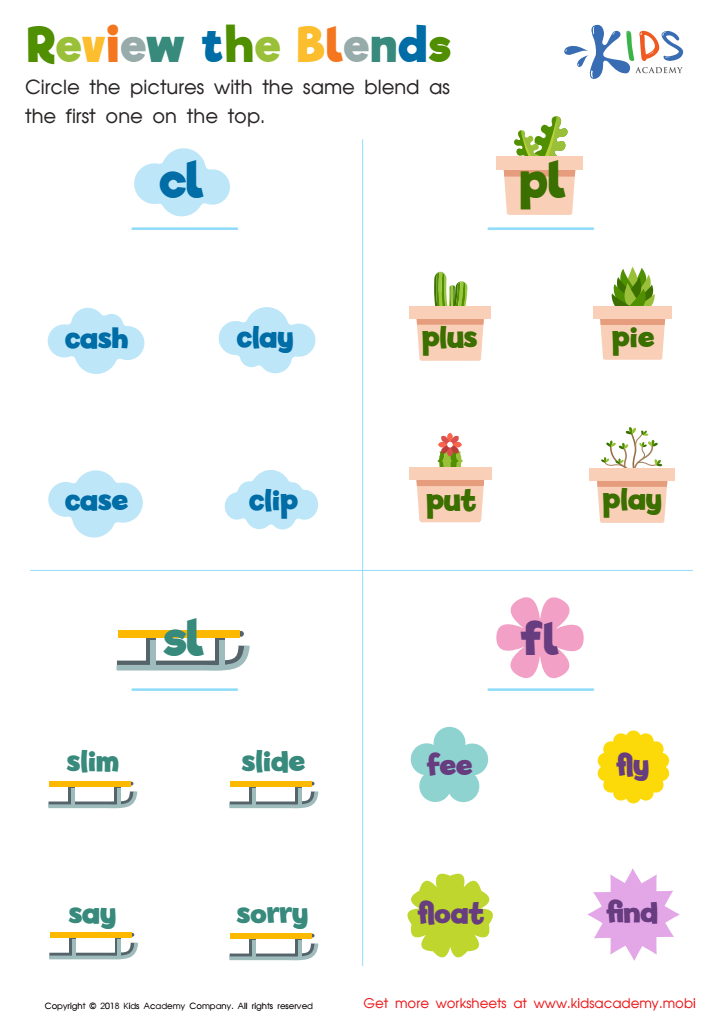Phonics practice Normal Consonants Worksheets for 6-Year-Olds
5 filtered results
-
From - To
Discover our engaging Phonics Practice Normal Consonants Worksheets specially designed for 6-year-olds! These interactive worksheets help young learners master consonant sounds and enhance their reading skills. Each activity focuses on identifying, tracing, and blending consonants, making phonics fun and accessible. As children complete each worksheet, they'll develop essential literacy skills while receiving active feedback. Perfect for school or home learning, these resources encourage repetition and reinforce understanding. Parents and educators will find them invaluable for fostering a solid phonics foundation. Explore our collection today and support your child's reading journey with enjoyable and effective phonics practice!


Twin Onset Worksheet


Words with sound p Reading Worksheet


Words with sound f Reading Worksheet


Words with Sound M Reading Worksheet


Review the Blends Worksheet
Phonics practice with normal consonants is crucial for 6-year-olds as it lays the foundation for successful reading and writing skills. At this age, children are developing their understanding of letters and sounds, which is critical in building their literacy abilities. Normal consonants serve as the building blocks of words, enabling children to decode unfamiliar words and enhance their vocabulary.
Engaging in phonics practice helps children recognize the connection between letters and their corresponding sounds, fostering confidence in reading. This skill is integral not just for literacy but also for overall communication abilities. The more proficient these young learners become in phonics, the better equipped they are to tackle more complex texts in the future.
Furthermore, phonics instruction can help identify any learning difficulties early on. By focusing on normal consonants, parents and teachers can provide targeted support, ensuring that children are not left behind in their literacy journey. Ultimately, investing time in phonics practice empowers children not only to read fluently, but also to develop a lifelong love for reading, unlocking endless opportunities for learning and personal growth. Parents and teachers should prioritize this essential aspect of education for the benefit of each child's academic success.
 Assign to My Students
Assign to My Students












